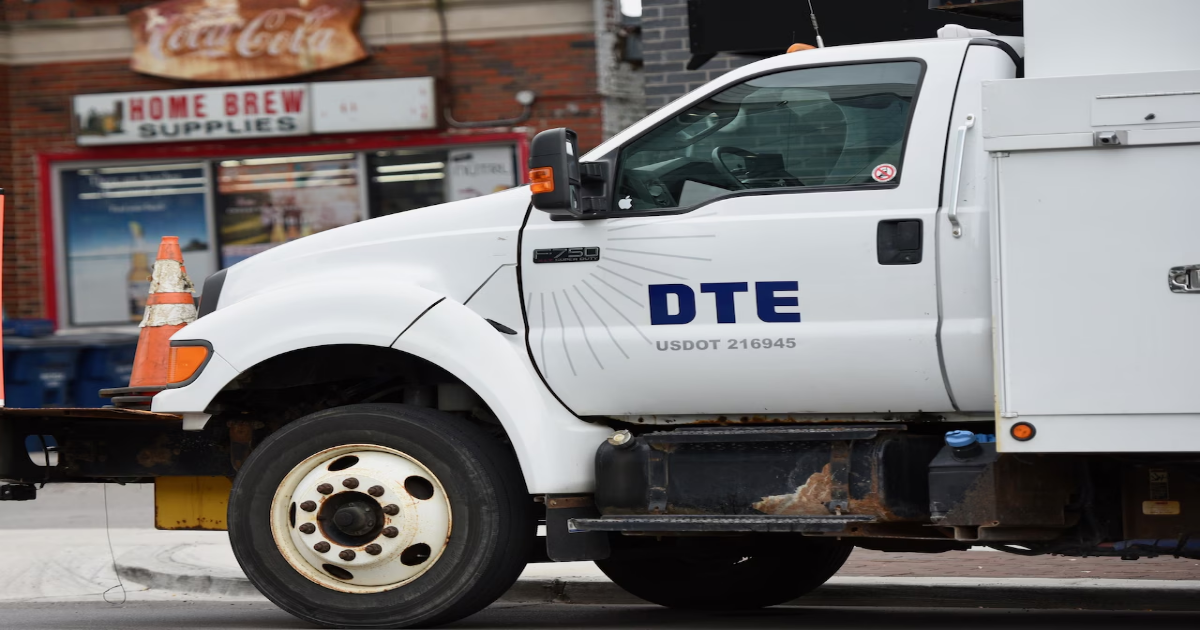DTE Energy, Michigan’s largest electric utility, wants to raise electric rates by $574.1 million — the second biggest ask in more than two decades.
If granted in full, which is unlikely, the rate hike would increase residential bills some 11%, with the typical customer paying $13.50 more each month beginning in early 2026, per DTE’s request.
The Detroit-based power company kicked off the process on Thursday, April 24 by filing a more than 1,800-page application with state regulators, immediately drawing fire from consumer and environmental watchdogs.
“We already pay the highest energy costs in the Midwest for the worst reliability, period,” said Bob Allison, deputy director of the Michigan League of Conservation Voters, in a statement. “Our bills are too damn high, and this latest request – mere months since the last increase – is a slap in the face to Michiganders that are struggling to afford their bills.“
This year marks the fourth in a row DTE is seeking to raise electric rates for its 2.3 million customers. The largest Michigan utilities are asking to do so almost as soon as they are able, with state law preventing them from requesting an increase more than once every 12 months.
Read more: Big Michigan utilities just won rate increases. They’ll soon be ‘back asking for more’
It’s been 395 days since DTE’s last application, and regulators granted it a $217 million increase in January.
Over the past two decades, the size of the recent request is only eclipsed by its ask in 2023, which totaled $622 million.
The big, for-profit utility was quick to emphasize that the filing of the rate hike request only marks the start of a 10-month process, and customers won’t see higher bills until February 2026.
The rate proposal supports “ongoing work to improve electric reliability and system resiliency in the face of extreme weather and to generate cleaner energy – all while keeping customer bills as low as possible and below the national average,” said DTE spokesperson Ryan Lowry in a statement.
After struggling along with other Michigan utilities with some of the worst reliability track records in the nation, DTE touted a nearly 70% improvement in time customers spent without power in 2024 compared to 2023.
It credits more than $5 billion in grid investment over the past five years as one reason why, but also acknowledges less extreme weather last year played a role.
A “majority” of its rate increase request is focused on addressing the recommendations of a deep-dive audit regulators commissioned into outage problems at DTE and Consumers Energy, according to Lowry.
The examination found DTE was worse than average compared to major American utilities when it came to time required to restore electric service after outages, and its aging grid was plagued with outdated infrastructure. It routinely took 10 or more years between visually inspecting pole-top equipment.
Read more: Consumers, DTE push back on some findings of major audit of their outage problems
Advocates criticize the utility for funneling ratepayer cash into capital investments, like replacing equipment and adding smart devices to the grid, over regular maintenance proven to reduce outages. That’s because DTE shareholders earn a return on that capital spending, they say.
“The link between reliability and affordability is that, as last year’s audit showed, DTE continues to overlook the things it could do to improve reliability that would not require a lot of spending funded by customers, like further shortening tree trimming and inspection cycles,” said Amy Bandyk, executive director of the Citizens Utility Board of Michigan, which advocates for residential customers.
DTE counters that it has “surged” its spending on tree-trimming in recent years, targeting the top cause of outages, and it must take a multi-pronged approach to hardening the grid.
“DTE Energy is making progress on building the electric grid of the future – when we invest, it works,” said Lowry.
The power company says the rate increase also supports its ability to continue transitioning away from burning coal, considered the dirtiest way to produce power, and toward cleaner energy sources.
It includes funding to convert the Belle River coal-fired power plant to burn natural gas. While still a fossil fuel that contributes to planet-warming emissions, gas is less impactful than coal.
DTE will also use money from the higher rates to continue converting the decommissioned Trenton Channel coal plant on the Detroit River to become the state’s largest grid-scale battery facility, able to store renewable energy and release it when needed.
The power company’s Thursday filing marks the beginning of what is called a “rate case,” a legal process overseen by a judge that culminates in a decision by regulators with the three-member Michigan Public Service Commission.
Outside groups, ranging from large industrial power users to community groups, formally “intervene” in the process, seeking to question and poke holes in aspects of DTE’s request. Using that testimony as evidence, regulators routinely slash utility rate increases by half.
Still, the process is an arduous one for the watchdogs, which include the office of Michigan Attorney General Dana Nessel, one of the only organizations to comprehensively evaluate thousands of pages of testimony in the case and suggest a total reduction of the rate increase.
“It’s a resource drain of time and energy, you have to really gear up for these cases,” said Assistant Attorney General Michael Moody, who leads the office’s utility customer advocacy work.
It’s another reason Nessel’s office is critical of utilities for seeking yearly hikes, which it says burden customers and advocates alike. “It’s a difficult process,” Moody said.
